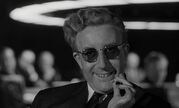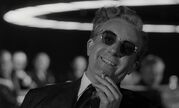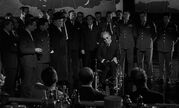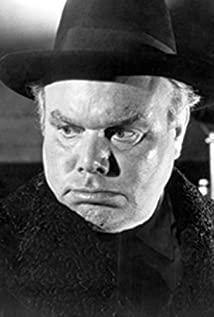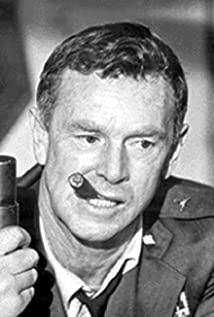During the Cold War between the two camps of the United States and the Soviet Union, an Air Force general at the U.S. Air Force base suddenly issued an order to start the R plan. This indicates that a nuclear war is about to break out. The cause of the outbreak was a general with a mental illness who wanted to conquer the world. However, in the tense and crisis atmosphere that the nuclear war is about to break out, no one is anxious about it. The people standing on the top of the mountain do not worry about the flood under the mountain, but only care about their own games. War is on the verge of breaking out, and the leader and makers of the war don't care. This is the greatest irony of war.
The black and white pictures exude a long-term atmosphere, bringing the audience back to the Cold War era, but the film does not cast it as cold and chilling. It has the look of a comedy, funny, funny, absurd... The general identified his sexual dysfunction as a Soviet conspiracy against the Americans. The various characters don't behave normally...the sexual metaphor in the character's name...there's a deep irony beneath its hilarious exterior. It has the most serious core, it's a serious anti-war film, a profound reflection on civilization. If the strong cannot protect the weak, this is also the greatest irony of civilization. A good dark comedy.
View more about Dr. Strangelove or: How I Learned to Stop Worrying and Love the Bomb reviews



